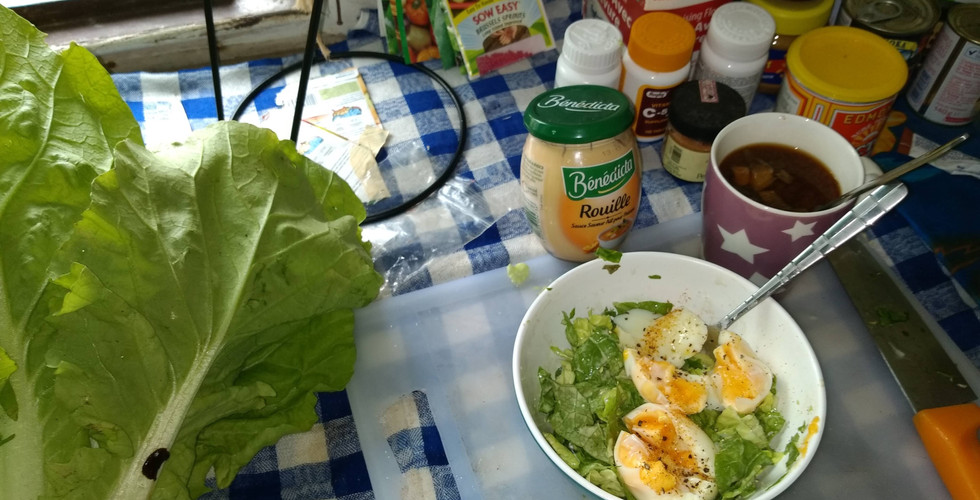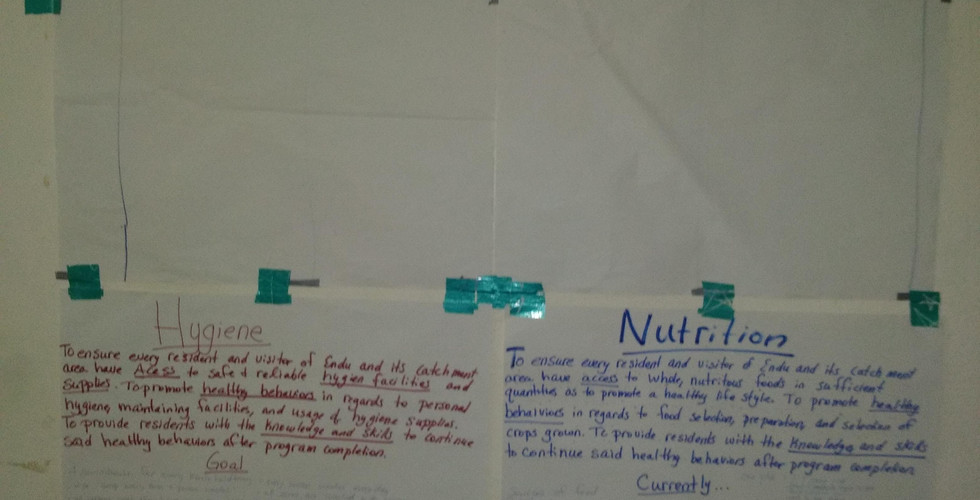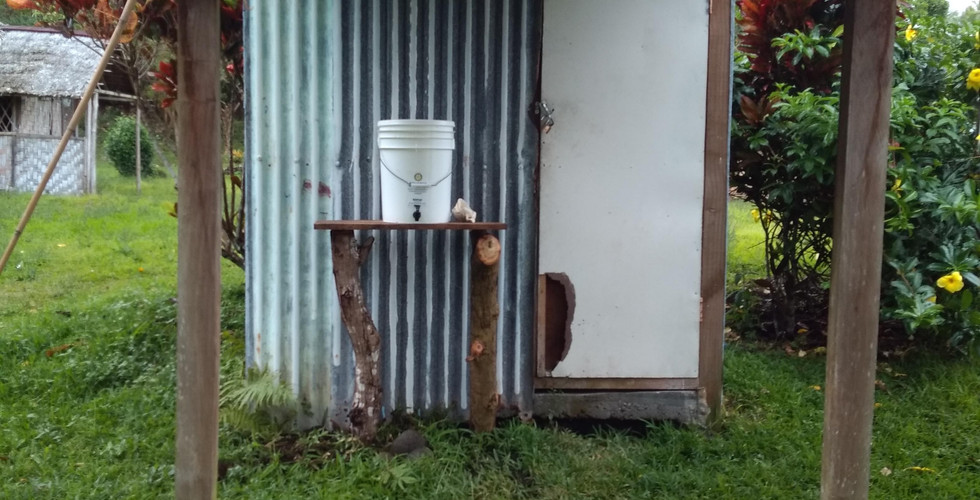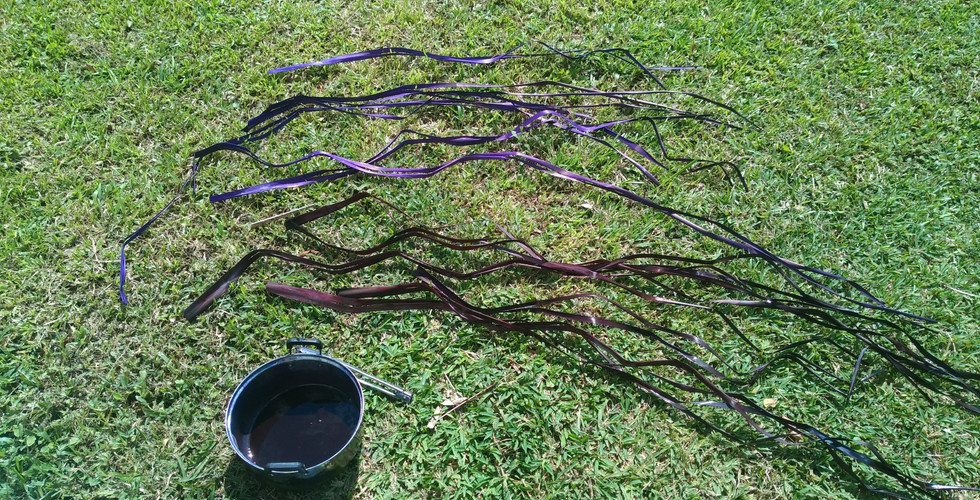Peace Corps Journey - Integration
- J.I.M. Kendall
.jpg/v1/fill/w_320,h_320/file.jpg)
- Nov 30, 2019
- 7 min read
Updated: Jan 7, 2020
The first three months at site your task had been integration, to get accepted by your community as a member. This is getting to know your family, your village, your counterpart, and for the community health (CH) volunteers, doing our assessment survey. Not every volunteer in our group has made it through integration and four have early terminated (ET) to go back to the United States between swear-in and reconnect. Why a person would ET is a personal decision and can range from being needed back home to too much culture shock. And culture shock is more than the volunteer adjusting. It's also the community accepting you and your boundaries.
Volunteers are cautioned against trying to change the culture to fit their own sensibilities. And while this may seem reasonable on the surface it can be difficult when a culture clash occurs. In the U.S. animal cruelty is illegal and feeding your pets is the norm. In Vanuatu hitting animals and maybe feeding them is the norm. Sometimes it's a clash between personal space and boundaries. A 'typical' American has an arms length personal space bubble that extends to personal items. Here not so much, such as it's not uncommon for someone to read over my shoulder what I'm writing just because they are curious and standing way to close. When stuff like that happens you set your boundaries on what you find acceptable and not acceptable and sometimes your family and community can accept those boundaries. So when the culture clash on both sides gets to be too much for a volunteer then s/he may elect to go home early since being placed at a new site in country is not an option.
It's always sad to hear that someone had chosen the ET and you wish them the best. I'm not friends with the other volunteers in my group - I'm not good at that sort of thing - but I care and wish that things had worked out for them. Everyone here wants a successful two years.
So how did my integration go? Well, I'm not good at making friends and I'm trying to get a whole village to like me using a language I don't know. My integration has been about trying to get people to talk to me while I'm socially awkward. The village language is the preferred choice here and I was taught Bislama, the official common language of the country. I'm not very good at Bislama and without people to talk with or to just listen to as they talk using Bislama it's hard to get better. So every time I try to say something I sound, well, less then intelligible. I've tried picking up local language, and in three months can say basic phrases and a few words.
To learn local and improve my Bislama I've gone back to school, all the way back to Kindergarten. I attend the Kindies' language lessons once or twice a week and tutor with one of the teachers. I've made up flash cards and self study. The school here has children's story books in both village language and Bislama so I've taken to borrowing books, two books, one in each language telling the same story. I'm trying to have conversations even if it's me piping up now and again to ask what was just said and I will get a small synopsis translation of the conversation into Bislama for me before the group goes back to talking language. I've done this enough times now that my host mom, aunt or counterpart will volunteer the translation. Then I try to say something in response to get people to keep talking to me but they generally don't.
During training your supposed to come up with a game plan for situations like this and other potential barriers to help you with integration. I was going to use crafting as a way to hangout. I crotchet, the women here are interested in learning to crotchet. I've given one lesson and no one has asked for a second. I will keep a project in my bag and will crotchet while hanging out and people will watch me, or ask me to sell them what I'm making, but that's about it. I've been learning to weave a grass mat. That gets some conversation going which is good. It's slow going trying to pick up language and make relationships but I'm trying. I just wish I was better at both.
The Peace Corps is all about Peace through friendship and cultural exchange. That means making meaningful relationships. I can't make friends and in the past, at I work, I rely on a professional working relationship to get things done. But that's not how things are done here. Friendships are the most important thing. Real relationships. So if I can't make meaningful relationships then how am I going to be successful? The project you do for your community has to be wanted by the community, there has to be stake holder investment for long term success. Can I do anything worth while if I can't get the people here to like me and talk to me? I don't know. But at least I won't fall into the 'Charismatic leader' trap. That is when a leader enters a group who is charismatic and the group follows along with what s/he suggests. But then once that charismatic leader leaves the group doesn't continue the project and it dies away. So if I can actually get people working on WASH&N projects it won't be just because it's playing follow the leader. It could potentially be because of genuine community lead initiative and desire. Silver lining.
People here have no shortage of ideas on what they want for their community, and they think I'm the golden ticket to get it done. There's an established pattern of helpful groups showing up, giving out things, and then leaving. Members of the community seems to think that I will just 'make it happen'. If I was a specialist who was hired for a contract I would understand that attitude. But I'm a specialist who has volunteered to help with development. In development you build capacity so that once your gone the community can handle things themselves. Or in other words, to work yourself out of the job. For my service I want the community to make it happen and I show them how. How can I get that mental shift across when I can't even get people to include me in daily conversation by using a language we both understand? The best I can do is try to get the Health Committee working and to use them as the voice of the community. But that's for after reconnect.
My integration has also been about me being a white person in a black community. I'm not comfortable writing that sentence. I don't like using labels like white person and black person. But that's the reality of my life here, those are the labels used by my community for me and for themselves. I get stared and pointed at. Mothers or older sisters will point me out to small children saying "Look, it's a Matalo." Children call out to each other and to me "Matalo! Matalo!" Matalo is local language for white and is used to refer to a white person and by extension a foreigner. Children will just stand near me and stare like I'm the weirdest thing they have ever seen and the adult nearby will say "The kid had never seen a matalo before" as explanation. I try to keep a good humor about it. I call out "Pikinini, pikinini!" which means 'child' whenever the kids start calling out metalo to me. Or crack a joke now and again like "Ya, it's scary seeing a matalo, I glow in the dark."
More than being a different color, the community has an idea in their head of what a Matalo can do, wants, or expects. They treat me like I am pampered, delicate, and need special attention. In some respects, it is true that I need some accommodation such as using a bush knife, or machete. Everyone here has used a bush knife from the time your old enough to hold one. I have not. So I don't have those skills. But I can learn them if you will show me how. I walk to the garden and work in the garden - which is amazing that I can do such physical activity. I am willing to sit on the ground next to you and I don't need to you to go inside and pull out a chair just for me. Everyone is very accommodating to the point where I am not treated the same but rather like a porcelain doll. So I just keep trying to observe and follow the example of those around me and turning down the kind offers of pampering. Though that chair does look nice from time to time.... :)
The first three months is also when the community health volunteers complete their initial survey. The CH program has taken inspiration from the Barefoot Doctor's of sixties by bringing health care, or in this case, public health, to the families of the community rather than trying to get them to come to you. With my counterpart, who is my professional connection, my colleague that I train up to do all that I do - we have assessed the current status of WASH&N in our area. We work as a team either in the dispensary or during home visits, where I take the lead on the interview and she helps with translation and explanation of the survey questions in language. After, we reviewed the results of the survey to get an initial idea of the water, sanitation, hygiene, and nutrition needs of the area.
So integration period has passed, culture shock has been processed, daily routines established. And your probably in a slump. It's tiring at the very least. Now it's time to go into the city for Reconnect Training. Eat out, get some restocking done, hot showers, 4G network if you know the good spots, and all of the other joys of not being in a rural village. After, it's time to get started on your project(s).















































































Komentáře